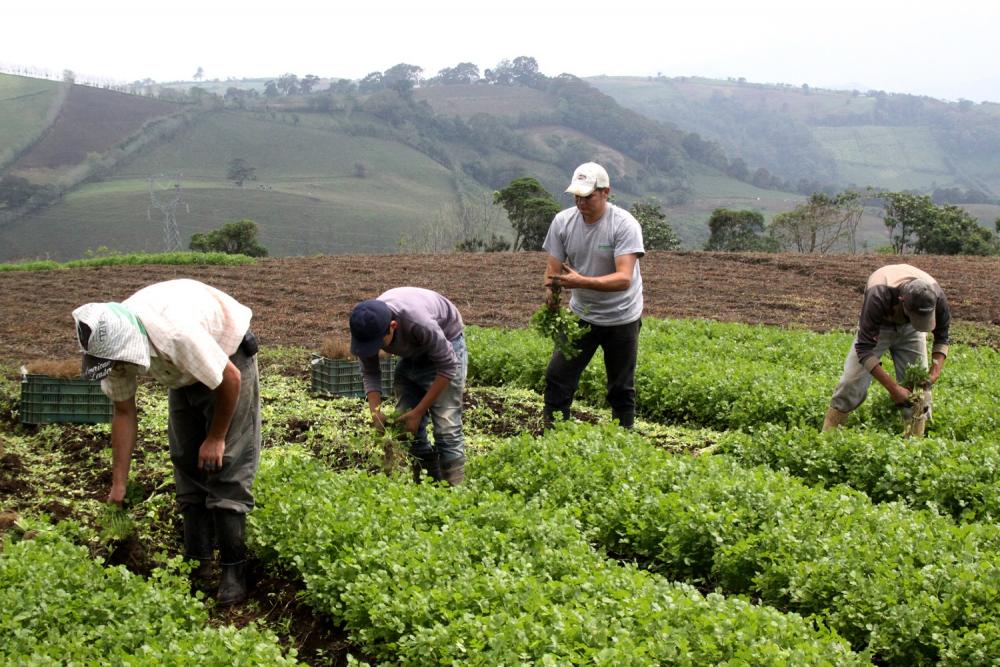IICA tackles the emergency, by prioritizing and strengthening support to guarantee food security and agricultural sustainability

San Jose, 27 March 2020 (IICA). The Inter-American Institute for Cooperation on Agriculture (IICA) is focusing its technical cooperation actions on supporting the efforts of countries in the Americas to guarantee food security, agricultural sustainability and the resilience of rural communities.
The Director General of IICA, Manuel Otero, has resolved that, in light of the global emergency triggered by the coronavirus, IICA’s five strategic programs (Bioeconomy and Production Development; Territorial Development and Family Farming; International Trade and Regional Integration; Climate Change, Natural Resources and Production Risks; and Agricultural Health, Food Safety and Quality) should devote all their efforts to mitigating the current and future impact of the coronavirus on the agriculture sector in Latin America and the Caribbean (LAC).
“The welfare and food security of our people are at stake”, warned Otero, “which makes it imperative that we deliver more effective and first-class technical cooperation”.
Through its Agricultural Health, Food Safety and Quality Program (AHFS), IICA will support the promotion of protocols and recommendations for handling agricultural products, which will assist in ensuring traceability and safety.
IICA will also assist in the development of remote diagnostics for early warning sanitary and phytosanitary systems in its member countries.
Ana Marisa Cordero, AHFS Specialist at IICA stressed that, “It is important that we bolster national and regional capacities in smart surveillance systems; risk management; and preparation for and response to sanitary and phytosanitary emergencies, by incorporating technology and information tools that are accessible to producers”.
She also explained that, “The promotion of good agricultural and manufacturing practices in the production, harvesting, handling and transportation of food will provide an opportunity for farmers, allowing them to produce high-quality products to contribute to the food supply”.
The Institute will also assist countries to develop territorial policies, with an emphasis on the supply of and demand for fresh foods, as well to highlight the way in which producers are managing their operations, in coordination with ministries of Agriculture.
According to Mario León, Manager of the Territorial Development and Family Farming Program, “We are redesigning public policies that will help this production sector to guarantee food supplies and to inspire consumer confidence with respect to demand for food”.
The International Trade and Regional Integration Program will concentrate on issues such as market diversification, value-added products and e-commerce.
Manager of the Program, Daniel Rodríguez, explained that, “Our experience and methodologies can assist in facilitating market diversification to reduce the risk of depending on a limited number of markets, as well as in identifying trade partners to foster production linkages to bolster export capacities, which will enable companies and producer organizations to successfully engage in export processes once the situation returns to normal”.
In collaboration with governments and agroindustry, IICA will contribute in areas such as value added strategies, organic processed foods, fair trade and the provision of agricultural trade information, in order to encourage experience and knowledge sharing and to foster trade recovery initiatives even from now.
Through its Climate Change Program, IICA will drive actions to underscore the importance of comprehensive risk management and efficient use of natural resources—particularly water—emphasizing the critical role of innovation and new technologies in ensuring that the agriculture sector recovers after the pandemic, improves its resilience and reduces greenhouse gas emissions.
The Bioeconomy and Production Development Program will promote the intensive use of knowledge regarding biological resources, processes, technologies and principles for the sustainable production of goods and services. For example, 96° alcohol is a byproduct of one stage of the ethanol production process and could be used to produce alcohol gel.
Director of Technical Cooperation, Federico Villareal, remarked that, “Each program offers its own instruments, experience, and expertise that will allow us to contribute, based on a much broader perspective, in designing agricultural and rural policies that countries will need, both now and in the future, in order to create a safer world”.
#IICAopenforbusiness
To protect the health and well-being of its staff, IICA has reduced activity to a minimum at its Headquarters in San Jose, Costa Rica and in its 35 Delegations in the Americas and in Spain. In keeping with the recommendations of the World Health Organization (WHO), most staff members are now working from home.
As part of its preventive measures, IICA has suspended international travel and introduced online hosting of meetings.
More information:
Federico Villarreal, Director of Technical Cooperation, IICA.
federico.villarreal@iica.int